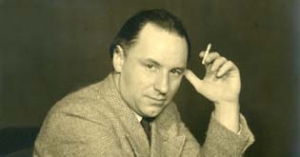Gallery
All Pictures (4)Biography
Arnold Fanck was born in Frankenthal (Rheinpfalz) on March 6th 1889. He studied chemistry and geology and later got his P.hd. in Zurich. After WWI – in which he fought as a volunteer –, Fanck tried himself in different professions before he founded the "Berg- und Sportfilm GmbH" in 1920.
As a self-taught director and producer, Fanck first specialized in documentaries about life in the mountains and winter sports. He later expanded into feature films and started to work with actors and dramatized scenarios: "Der Berg des Schicksals" saw the debut of Luis Trenker, while Leni Riefenstahl made her first appearance in "Der heilige Berg".
Most notable for their spectacular settings and visuals, the secret stars of Fanck"s films were his famous cinematographers, among them Sepp Allgeier, Richard Angst, Hans Schneeberger, Walter Riml, Albert Benitz and Kurt Neubert.
In 1929, Fanck, who also worked as editor on his own films, collaborated with G. W. Pabst on "Die weiße Hölle vom Piz Palü" ("The White Hell of Pitz Palu"). One year later, he produced his first sound feature with "Stürme über dem Montblanc". While his films were visually striking and became daring examples of on-location filmmaking, the accompanying plots stayed painfully simple and often drifted into pathetic melodrama.
In 1932, Fanck was invited by Universal to helm an arctic expedition, during which he completed the principal photography for "SOS Eisberg". The finished film starred Riefenstahl and famous pilot Ernst Udet, and was followed by "Der ewige Traum". Although the neo-mystical view of nature in his films was hailed by Nazi ideologists, Fanck refused to become a party member. He continued his filmmaking career throughout the 1930s, mostly shooting state-commissioned documentaries. After the war, he tried to re-establish himself with a new production company but failed to raise the necessary funds. He sometimes worked as a production advisor and later received an award for his artistic contribution to German cinema.
Arnold Fanck passed away in Freiburg on September 28th 1974.
